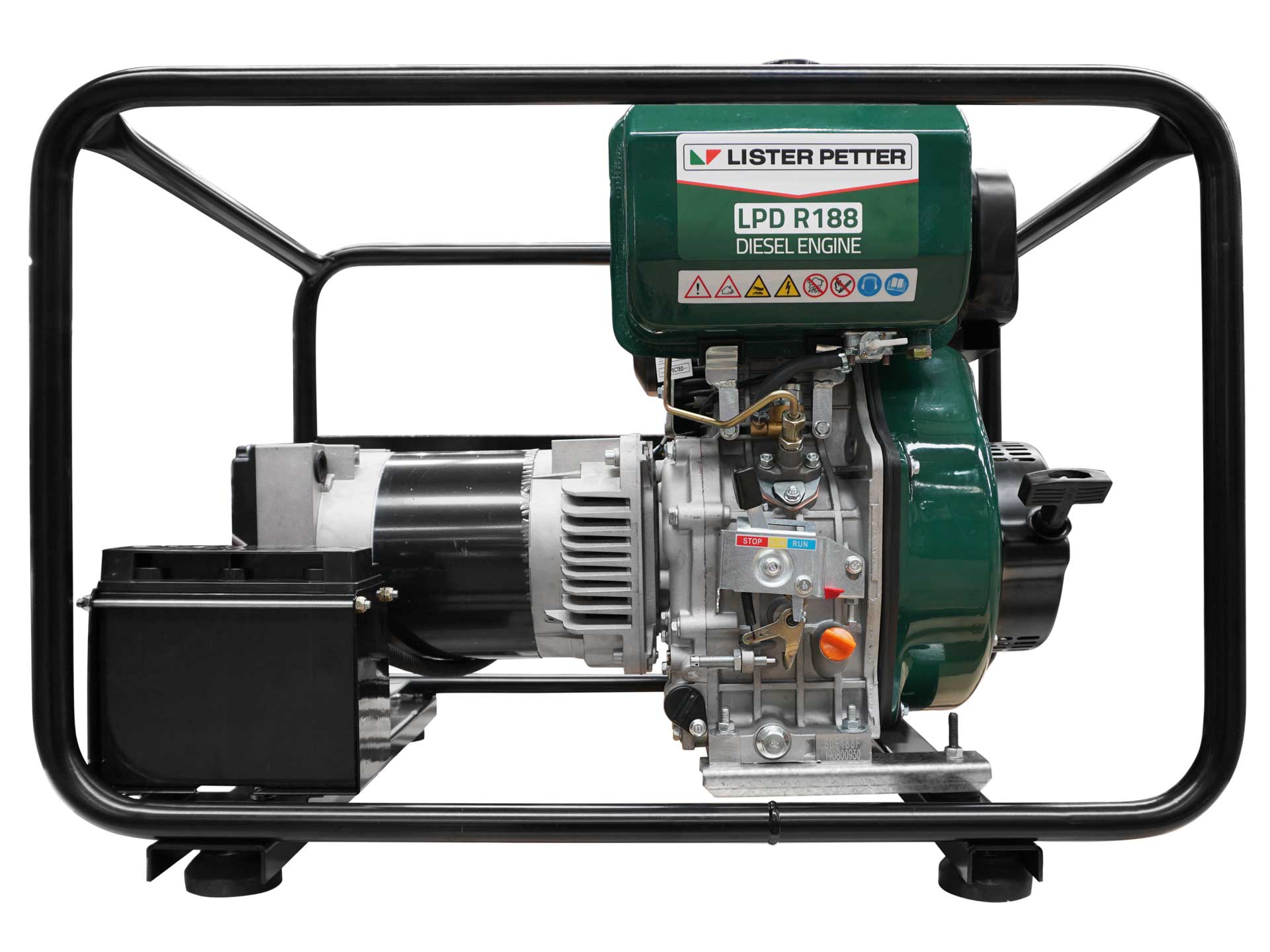Electric Generators in Nigeria: What You Need To Know Before Purchasing
Electric Generators in Nigeria: What You Need To Know Before Purchasing
If you’re looking to buy an electric generator in Nigeria, there are certain things you need to be aware of. There are numerous makes and models of electric generators available in Nigeria, each with their own unique features and benefits. With the right generator, you can ensure reliable power supply for your home or business. However, it is important to understand the different types of generators available, their features and benefits, as well as what you need to look for when purchasing an electric generator. In this article, we will discuss the different electric generators available in Nigeria, the features and benefits they offer, and what you need to consider before making a purchase. With the right knowledge and information, you can make an informed decision when it comes to electric generators in Nigeria.
Overview of Electric Generators in Nigeria
An electric generator is a device that converts mechanical energy into electrical energy. These types of generators are used in homes and businesses in areas where there is no access to the power grid. They are primarily used for backup power when there is a blackout or when the grid is unstable. However, you can also use them to maintain consistent power supply at any given time. This is especially helpful in places where the grid is underdeveloped and highly unstable with frequent outages. The generators available in Nigeria are powered by three types of fuel: diesel, gasoline, and LPG. However, gasoline and LPG generators are primarily used indoors due to the high level of pollution they produce. The voltage of an electric generator can vary depending on the model. The most common voltages found in Nigeria are 230 volts and 415 volts. You can also find generators that produce 480 volts. Before purchasing an electric generator, you need to understand the voltage requirements of your appliances.
Types of Electric Generators
There are various types of electric generators available in Nigeria, each with their own unique features and benefits. The most common types of electric generators are: – Standby generators – This is the most common type of electric generator in Nigeria. They are also known as Operating Reserve Generators (ORG). Standby generators are intended for continuous use and are commonly used for critical loads such as hospitals, water treatment plants, and computer data centers. They are expected to be continuously operating in the event of a grid failure. Standby generators are equipped with a start capacitor and an automatic load shedding device. They also have an automatic system that cuts off the connection with the grid when it senses overload or when the grid is unstable. – Load-shedding generators – Load-shedding generators are primarily used for load shedding events. They are used to reduce the power load from the grid. This is especially helpful during peak hours when the grid is highly unstable. – Peak-load generators – Peak-load generators are designed to meet the high demand for electricity during the peak hours of the day. They are primarily used in industrial and commercial facilities. – Cheap generators – Cheap generators are very inexpensive and are used as backup power systems. They are also referred to as economy or low-end generators. These generators produce low power output and are mostly used in residential homes. – Stand-alone generators – Unlike the other types of generators mentioned above, stand-alone generators don’t rely on the availability of the grid. They are used in remote areas where the grid is unstable or there is no grid at all. They are also used when a power outage is expected.
Features and Benefits of Electric Generators
There are many features and benefits of electric generators that make them an attractive option for power supply. Some of the most notable features include: – Reliability – Unlike the grid, which is highly unstable and unreliable, electric generators offer consistent power supply even in times of high demand. – Cost-effectiveness – Despite their higher initial investment, electric generators are cost-effective for long-term usage. You can also reduce your monthly expenses by installing energy-efficient appliances, which will reduce your power bill. – Versatility – While the grid can only provide a set voltage and frequency, electric generators can generate different voltage levels. This makes them more versatile, which is particularly helpful when you have various appliances in your home. – Power source – Unlike the grid, which relies on the hydro-carbon source of fuel, electric generators can generate power from a number of different sources, such as:
Things to Consider When Purchasing an Electric Generator
There are certain things you need to consider when purchasing an electric generator in Nigeria. These include: – Maintenance – You need to make sure that the generator you purchase has low maintenance requirements. Failure to maintain your generator will result in a reduced lifespan and will increase your operating expenses. – Fuel type – Before purchasing an electric generator, you need to consider the type of fuel it uses. Portable generators, for example, can use a number of different fuel types, while gas-powered generators use liquid petroleum gas (LPG) or natural gas. – Noise level – You need to find a generator with a noise level that matches your needs. If you have neighbors close by, you wouldn’t want to buy the noisiest generator in Nigeria. You also need to consider the noise level when using the generator.
What to Look for in an Electric Generator
Before you make a purchase, you need to consider a few factors related to the functionality and usability of your generator. Some of these factors include: – Power – The amount of power your generator can provide is an important factor to consider. You need to make sure that the amount of power it provides is enough to handle the loads in your home or business. If not, it will trip the circuit breaker or cause the circuit to overheat. – Fuel type – You need to choose a generator that runs on a fuel type you can easily access and afford. This will save you a lot of time and money when it comes to maintenance and overall usage. – Noise level – You need to find a generator with noise level that matches your needs. If you have neighbors close by, you wouldn’t want to buy the noisiest generator in Nigeria. You also need to consider the noise level when using the generator.
How to Choose the Right Electric Generator
Before purchasing an electric generator, you need to know what to look for in a generator and the process of choosing the right one. – Consider your load – Before you purchase a generator, you need to know how much power you require to sustain in your home or business. This will help you determine the amount of fuel you need to put into the generator. – Compare features and benefits – After determining the amount of power you require, you need to compare the features and benefits of different models. This will help you make an informed decision and find the best electric generator for your needs. – Understand the warranty – When purchasing an electric generator, you need to know what the warranty covers. A longer warranty period means that you will spend less on maintenance over time. – Find a well-reviewed generator – Another important thing to do is to find a well-reviewed generator. This will ensure that you are getting a high-quality product and that it is reliable.
Maintenance and Care of Electric Generators
You need to maintain your electric generator to ensure that it lasts for a long time. Here are some things you need to do to keep your generator in good condition: – Clean the generator – Regularly cleaning the generator will prevent the build-up of dirt and dust that can reduce the lifespan of your generator. – Maintain the fuel level – The best electric generator in Nigeria will not work if the fuel level is too low. You need to keep the fuel level at a consistent level to ensure that the generator is always ready for use. – Keep it away from water – You need to keep the generator away from water, especially when using LPG or diesel-powered generators. – Repair or replace parts – You need to regularly inspect the generator for any signs of damage or wear. You also need to replace or repair parts that are faulty or worn.
Tips for Buying an Electric Generator
Before you make a purchase, you need to consider a few factors related to the functionality and usability of your generator. Some of these factors include: – Power – The amount of power your generator can provide is an important factor to consider. You need to make sure that the amount of power it provides is enough to handle the loads in your home or business. If not, it will trip the circuit breaker or cause the circuit to overheat. – Fuel type – You need to choose a generator that runs on a fuel type you can easily access and afford. This will save








LEAVE A COMMENT
You must be logged in to post a comment.